Game Review: “Yakuza Zero” (Playstation 4)
Published on February 3rd, 2017 in: Game Reviews, Gaming, Reviews |Comparisons to Rockstar Games’ unbelievably popular crime opus, Grand Theft Auto, are always apt with the Yakuza series. Like those games, Yakuza Zero, a prequel to the prior five main entries and several spin-offs in the series, attempts to provide a snapshot of the culture embodied in its distinct setting (fictionalized cities in America in Grand Theft Auto, Japan in Yakuza) by telling stories about their criminal underbellies. Though fundamentally similar in this way, it’s the cultural distinctions that make both games into well-crafted, interactive time capsules, albeit with some confounding elements.
Like Grand Theft Auto’s iconic Vice City installment, Yakuza Zero takes the player back to the 1980s, dropping us first into the fictional red light districts of Kamurocho in Tokyo, where Yakuza families rule like kings and any imaginable pleasure is on offer, and the equally hedonistic Sotenbori in Osaka for a parallel storyline. Quaintly, you’ll receive messages on a pager and have to run around looking for a pay phone, and you’ll encounter a man that’s, shall we say, a little over-enthusiastic about his gigantic, suitcase-sized portable phone. Even the hair-metal-inspired soundtrack screams ’80s.
The Japanese real estate boom and subsequent crash of that period provides much of the central story, and feels particularly relevant to the culture of today, with portrayals of both incredible excess and the miserably marginalized. It’s here that Yakuza’s layered storyline really shines, as it takes pains to emphasize that there are no good or bad guys among the main characters here. Everyone’s grasping for power and everything is political, even for our protagonists and those in their circles that operate on the fringes of society.
Prior entries in the Yakuza series have allowed the player to assume the identities of several of the game’s Shakespearian cast, but Yakuza Zero whittles the experience down to a very manageable two protagonists; the ice-cold Yakuza mainstay Kazuma Kiryu, and the viciously charming “lord of the night” Goro Majima. Both play and feel as differently from one another as can be. Kiryu is aloof and unrelentingly serious, while Majima is oddly nurturing in a way, and more graceful. The switch between characters every two chapters is abrupt, as you’ll play several hours with Kiryu before being whisked to an entirely different setting and introduced to a whole separate cast of characters and Yakuza families for Majima’s introduction, and the latter’s storyline and gameplay is far more engrossing from the get-go than Kiryu’s. I found myself disheartened when the perspectives switched back. Eventually, the two stories dovetail, but this is after 15-20 hours of play time.
Street brawlers going back to Double Dragon, Streets of Rage, River City Ransom, and the Shenmue series rely on repetitive waves of mostly indistinguishable goons for you to mow down between story beats and Yakuza Zero is no different. As you traverse the two main maps, you’ll be accosted at random by thugs quite frequently, which leads to a battle between your character and two to three underlings. This is, at times, frustrating when you’re just trying to get to the convenience store across town for a bottle of sake or some ramen and you’re pulled into these encounters, but they provide a source of income to level up your character (how ’80s, using money as the sole means of self-improvement) and to actually buy that ramen.
The rote repetition of the combat is broken up somewhat with the introduction of distinct fighting styles, of which each character has three. Kiryu’s, for example, includes a “Rush” style that features quick hits and skillful dodges, a “Brawler” style with more brutal, deliberate hits, and a “Beast Mode” style that allows you to employ traditional martial arts techniques like beating someone half to death with a bicycle or a road pylon.
Majima’s fighting styles are even more interesting, incorporating a bat that he wields as gracefully as a pair of nunchucks, and a flamboyant breakdancing-based style that’s reminiscent of capoeira. Being able to switch between these styles on the fly, and punctuating the combat with bone-crushing finishing moves (don’t miss “The Essence of Face-Twisting”) breaks up the repetitiveness nicely though, and it’s rewarding whenever you upgrade or unlock new techniques. It’s even more satisfying when you learn the distinct rhythms of each fighting style, and use them to put a hurting on a bunch of thugs.
While the Grand Theft Auto series increasingly prioritizes player freedom and creativity, evolving the experience into a chaotic sandbox, Yakuza is often defined by it’s constraints. Free-roaming and layered as Kamurocho and Sotenbori may be, the player is frequently nudged back to the story’s well-defined path, rather than being encouraged to explore and improvise very much. Similarly, while Grand Theft Auto has moved towards more of a playable experience, meaning fewer long cutscenes and more interactive set pieces, Yakuza doubles down with long, drawn out, cinematic scenes to drive the story forward. I actually fell asleep during one of these the other night.
Despite their length, though, these scenes (and every aspect of the game, really) are stunningly realized. Thoughtful blocking, garish settings, superb voice acting, and an almost unsettlingly detailed visual experience (one can discern every pore on a character’s face, and subtle changes in expressions are painstakingly rendered) reward the patience required to get through these scenes. Still, it can be pretty frustrating to newcomers to the series when you realize that this open world isn’t terribly open, especially compared to its American counterparts.
For all its appeal and attention to detail, we need to talk about the women in Yakuza Zero, though. In many ways, the game is a treatise on masculinity, nearly all of which is of the toxic variety here in 1980s Japan. Owing to the fact that this is a representation of the criminal underside of a massive city, one can’t, unfortunately, expect enlightened perspectives on the experience of women but I think that this is a cop-out.
Going out on the street to recruit women and using them as tools to placate the perverts that patronize Majima’s club is transparently gross, even if Majima openly despises and ridicules these men. There’s an uncomfortable (to say the least) paternalism on display in Majima’s storyline as he “manages” the personalities of his roster of hostesses, and he buys, sells, and talks about them like they’re cattle or commodities.
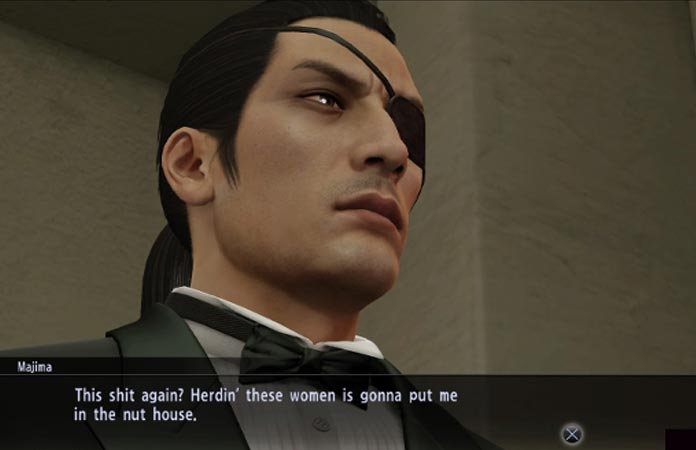
Literally talking about female employees like cattle is why this game will be a tough sell to women.
At least the hostess club is a central part of Majima’s story though, unlike the “lovingly” realized scenes of our protagonists watching softcore porn (live-action videos of what I assume are Japanese porn actresses that you “collect” in your adventures throughout the city), complete with a satisfied grunt and a close up of a box of tissues, that are unnecessary at best. Similarly, a ridiculous early side quest that involves lecturing a high school girl about kink-shaming while also trying to persuade her to stop selling her used panties, or the minigame that entices you to place bets on scantily-clad women as they wrestle make it clear that Yakuza is doing anything but trying to appeal to women here, and games in 2017 should be better than that.
What’s frustrating about the intensely problematic elements of Yakuza Zero is that it regularly, especially in Majima’s far more interesting arc that shows up around eight hours in, proves itself capable of brilliant storytelling and a willingness to effectively tackle tough, complex subjects like sex trafficking, family honor, religious cults, and Kiryu and Majima’s desperation to regain footing within their respective clans. Though it’s hard to imagine based on what I’ve written above, the “lord of the night” turns out to be one of the most likeable, compelling video game characters I’ve seen in awhile. The story of how Majima lost his eye is legitimately tragic and is steeped in a tenderness that’s betrayed somewhat by the absurd and alienating content elsewhere in the game. Even some of Majima’s optional side quests have an emotionally-complex underpinning, like one in which you pretend to be a young girl’s boyfriend in order to impress her father. Cliche as it might sound, the resolution to that one is unexpectedly sweet.
Sometimes at the expense of actual fun, Yakuza Zero is a period piece, offered up in earnest. Diversions like full renderings of classic ’80s Sega arcade games like Space Harrier, weirdly engrossing karaoke and disco dancing rhythm games, and activities like baseball, fishing, golf, bowling, and mahjong (to name only a scant few) may not always play directly into the main story, but they breathe a kind of life into the world, even if it’s sometimes as disgusting as that of a pervert’s breath on a hostesses ear. Underneath the crass sexism, there’s a lot of genuinely funny, affecting, exhilarating experiences to be had in Yakuza Zero. It’s a real shame that women will likely be turned off by the game long before it presents itself.
Yakuza Zero is available exclusively for the Playstation 4.
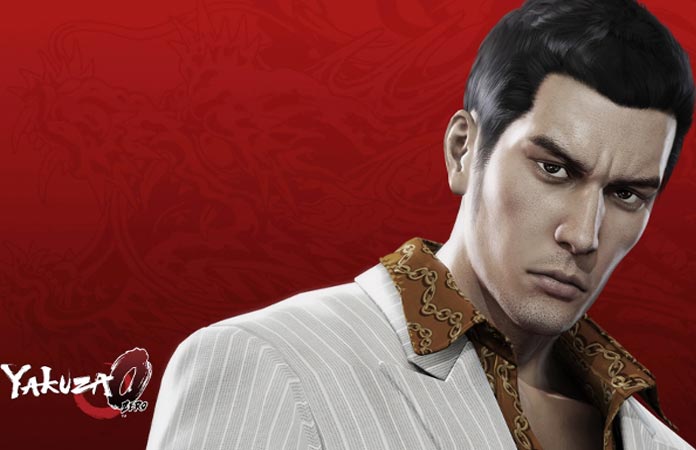
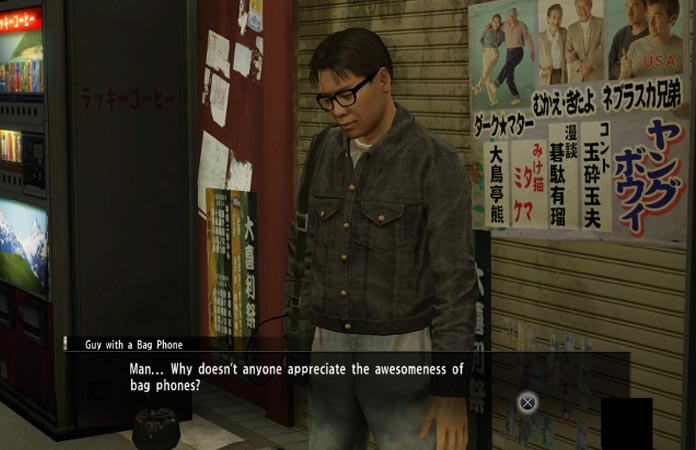
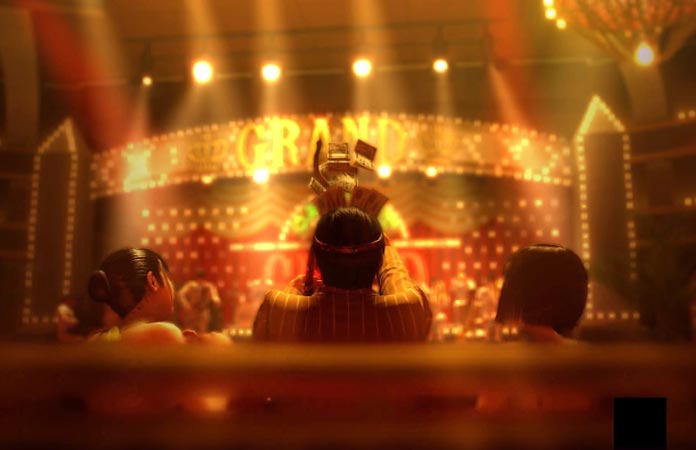
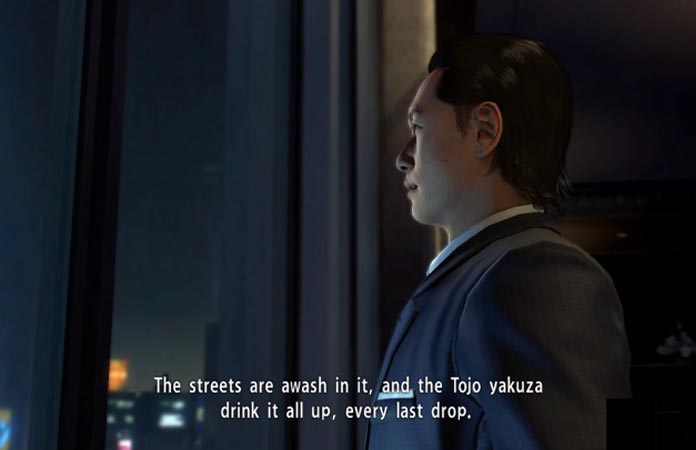
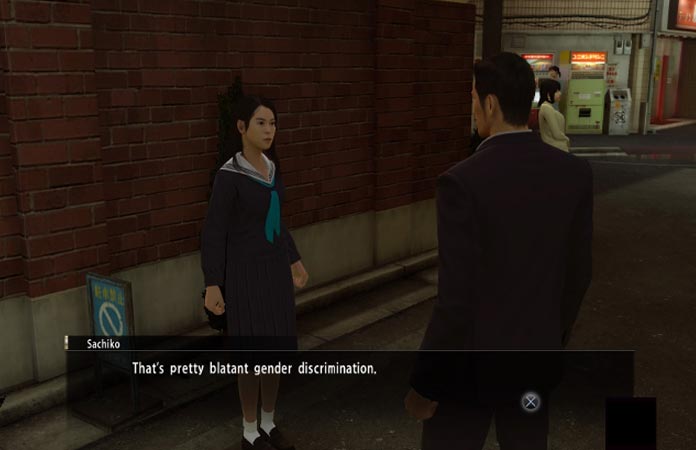
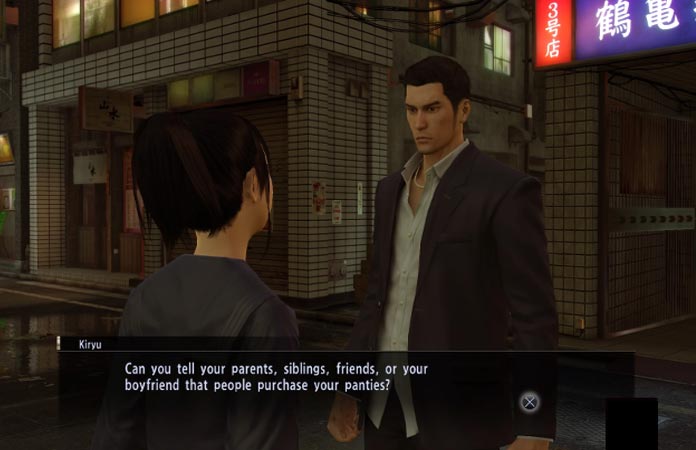
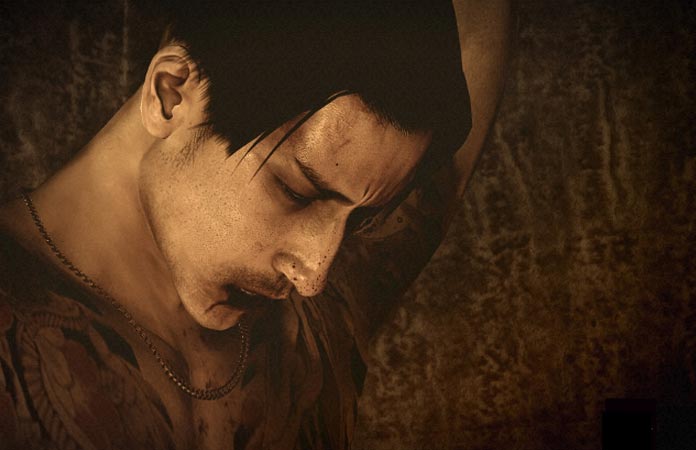
Time limit is exhausted. Please reload the CAPTCHA.